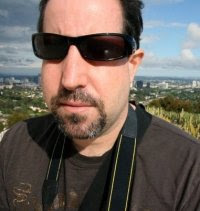Lexicography, anyone? Why Dictionaries are soo Victorian
 In a recent TED Conference video, dictionary evangelist Erin Mckean gave a perspicacious panegyric regarding the purpose of lexicographers and their compiling of dictionaries, and how the epitome of dictionary-ness, the giant, tightly-guarded codex of official ("real") English words is just a leftover habit from Victorian days. Even in the Information Age, computers have not changed dictionaries much -- as she puts it, online dictionaries are electric velocipedes in an age of cars.
In a recent TED Conference video, dictionary evangelist Erin Mckean gave a perspicacious panegyric regarding the purpose of lexicographers and their compiling of dictionaries, and how the epitome of dictionary-ness, the giant, tightly-guarded codex of official ("real") English words is just a leftover habit from Victorian days. Even in the Information Age, computers have not changed dictionaries much -- as she puts it, online dictionaries are electric velocipedes in an age of cars.It occurred to me that lexicography (or perhaps "neolexicography", my new word for the aspect of compiling dictionaries involving brand new words in use) is a bit like collecting toys, or stamps, or music or other accumulation activities where one is interested in the context -- where did this thing come from? How was it used? What significance does it have? And like sound and music, words are meant to be shared; they are building blocks of expression. Lexicography does not have to have aesthetic bias -- insignificant, obscure words can corralled along with the magnificent. But could it also be like gourmet cooking? Like Remy the rat in Ratatouille having an appreciation for exotic and delightful tastes, selecting the colorful and illustrative over the merely vulgar, cliché, or boring?
The Internet is all of the above. There is room for dictionaries with everything and dictionaries with only words some group of people finds acceptable. Wherever words and enthusiasm start to coalesce, there will be a lexicographer waiting...
Labels: dictionaries, lexicography, words



0 Comments:
Post a Comment
<< Home